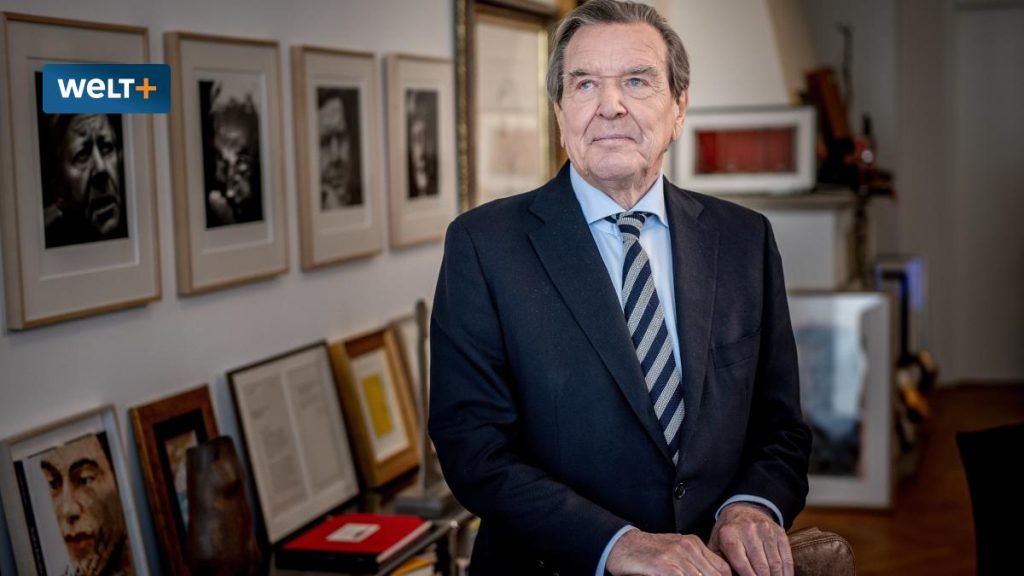Gerhard Schröder, former Chancellor of Germany, celebrated his 80th birthday recently, prompting reflection on his complex and controversial legacy. Many political observers are puzzled by Schröder’s dual image as both an admired reformer and a close ally of Russian President Vladimir Putin, whom many view as a criminal. However, both aspects of Schröder’s persona can be seen as part of a coherent whole.
Schröder’s time as Chancellor from 1998 to 2005 was marked by significant reforms, such as the Agenda 2010 program aimed at modernizing the German economy. These reforms were hailed by some as necessary steps to keep Germany competitive in the global market, while others criticized them for their impact on social welfare programs and workers’ rights. Schröder’s approach to governance was characterized by pragmatism and a willingness to make tough decisions, which earned him both praise and criticism.
In recent years, Schröder’s close relationship with Putin has come under intense scrutiny, with many accusing him of being a puppet of the Russian leader. Schröder’s role as chairman of the board of directors at the Russian energy giant Rosneft has raised concerns about potential conflicts of interest and his loyalty to Germany. Critics argue that Schröder’s ties to Putin undermine Germany’s foreign policy interests and raise questions about his motivations.
Despite the controversy surrounding his association with Putin, Schröder remains a respected figure in German politics, with many acknowledging his contributions to the country’s economic growth and stability during his time as Chancellor. His ability to navigate complex political issues and his commitment to pursuing necessary reforms have earned him praise from supporters, while his relationship with Putin continues to be a point of contention among critics.
As Schröder celebrates his 80th birthday, his legacy remains a topic of debate and reflection in Germany. While some view him as a statesman who made tough choices for the country’s benefit, others see him as a divisive figure whose actions have raised questions about his loyalties and motivations. Ultimately, Schröder’s complex legacy serves as a reminder of the challenges and complexities of political leadership, and his contributions to German politics will continue to be debated for years to come.
In conclusion, Gerhard Schröder’s 80th birthday serves as an opportunity to reflect on his legacy as a reformer and a controversial figure in German politics. His time as Chancellor was marked by significant reforms and tough decisions, earning him both praise and criticism. His close relationship with Vladimir Putin has raised questions about conflicts of interest and loyalty to Germany, but Schröder remains a respected figure in German politics. As his legacy continues to be debated, Schröder’s contributions to the country’s economic growth and stability cannot be denied, making him a complex and intriguing figure in German history.


